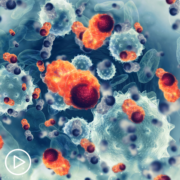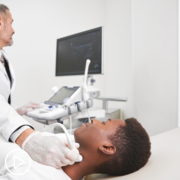Benefits of Vitamins
Benefits of Vitamins from Patient Empowerment Network on Vimeo.
Vitamins are very important compounds that are required in small amounts in the diet to support various functions related to growth, reproduction, and the maintenance of health. Watch now.
See More from Rx for Community Wellness
Transcript:
Vitamins are essential micronutrients that are required for many bodily functions and therefore necessary to maintain health. Vitamins are traditionally categorized into two groups: water-soluble meaning they are dissolvable in water or fat-soluble meaning they are dissolvable in fat.
Water soluble vitamins include a collection of B vitamins and vitamin C. Vitamin C is a powerful antioxidant found in citrus fruits like oranges and grapefruit and in cruciferous vegetables like broccoli and Brussels sprouts. The collection of B vitamins all assists in various metabolic processes in the body and are found in a variety of unprocessed plant-based foods and animal foods. Vitamin B12 is mainly found in animal foods but can be easily obtained through fortified cereals and non-dairy milks for those consuming a plant-based diet.
Fat soluble vitamins include Vitamins A, D, E and K. Vitamin A is an antioxidant and supports eye health found in leafy green vegetables like kale, orange and yellow vegetables like carrots. Vitamin D supports bone health and is obtained through exposing the skin to the sun, eating fatty fish and fortified foods. Vitamin E is an antioxidant that protects cell membranes and is found in nuts, seeds, fruits, and vegetables. Vitamin K supports blood clotting and bone health and is found in green leafy vegetables and Brussels sprouts.
Unless there is a deficiency, it is recommended to primarily focus on getting vitamins from food sources vs supplementation. By eating a variety of whole foods from all food groups, you can ensure that you are getting all the vitamins needed to maintain health, protect against cancer and support recovery from cancer treatment.
Thanks for joining this Patient Empowerment Network program. Please remember to ask your healthcare team what may be right for you.






